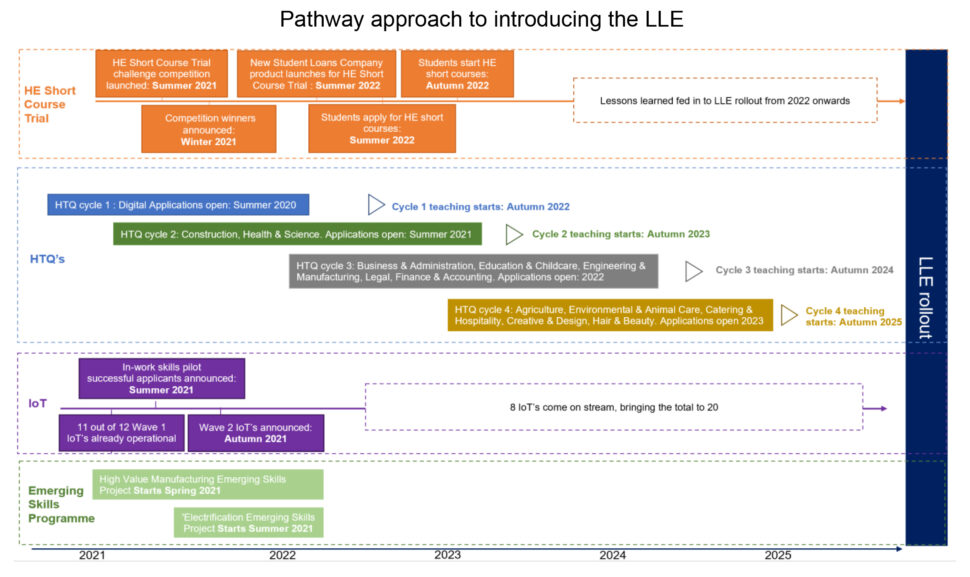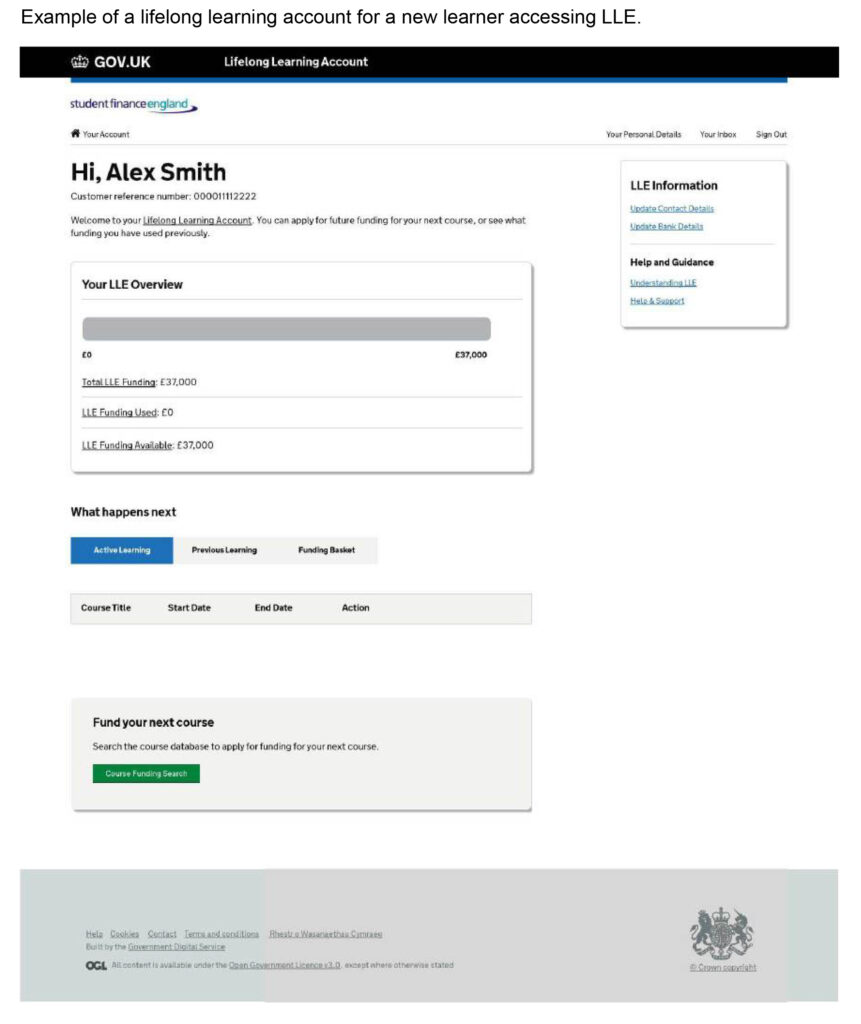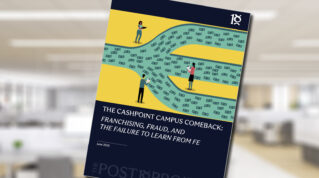Access to the government’s flagship lifelong learning loans policy could be restricted to “high-value” courses and age-based limits.
Proposals around course and learner eligibility for the government’s flagship lifelong loan entitlement (LLE) were published this morning by the Department for Education.
The new entitlement will give adults access to an online “lifelong learning account” which will, from 2025, include how much funding an individual can borrow to cover the cost of modules or full courses at levels 4 to 6.
Through the entitlement, students will have access to loan funding worth up to the equivalent of four years of undergraduate study – £37,000 by today’s fee level.
The scheme has been designed to boost demand for higher technical qualifications and reverse the decade-plus decline in adults participating in education and training. The government hopes that the LLE will mainstream and increase take-up of modules that can accumulate credits to full qualifications.
Providers including universities, colleges and training providers are now being asked to help design the scheme. The 60-page consultation document published today contains 49 open-ended questions on topics ranging from the changes needed to the student finance system, how to provide maintenance support and how qualifications should be approved for the scheme.
More questions than answers
Ministers have given themselves until 2025 to build, test and implement the LLE. Today’s consultation bundles questions along three themes: ambition, scope and quality.
In their foreword, the education secretary Nadhim Zahawi and further and higher education minister Michelle Donelan compared the introduction of the scheme to the formation of the National Health Service: “Like the revolutionary ideas that shaped the founding of our NHS, the LLE is based on the idea that people regardless of background or wealth should have a clear understanding about their loan entitlement, with those eligible able to access the system and learning opportunities flexibly – as and when they need it.”
Ministers and officials are faced with significant design and implementation challenges. In particular, policymakers hope to bring coherence to what is an incredibly complicated landscape of student finance regulations, multiple regulatory systems across higher and further education and bringing in a new system of credit transfer.
Officials are not yet clear on a process to decide which courses and qualifications students will have access to through their lifelong learning accounts. Questions include whether or not to include courses that are currently eligible for HE student finance, how to include new higher technical qualifications and how to handle popular programmes like foundation years and PGCEs.
There’s also a rough “pathway” to implementation which outlines three feeder pilot schemes that will inform the development of the LLE rollout including the Office for Students’ HE short course trial.

Susan Pember, policy director at HOLEX described how a lack of cross-government initiatives within the LLE is a “lost opportunity”.
“It is helpful that the consultation is out, but the proposals for a four-year loan entitlement are still very perplexing,” she said.
“Mainly because students can already get a four-year loan for both fees and maintenance and I can’t see the demand for that type of delivery at 19 declining. The lack of parity between level 3 and 4 and 5 seems to be as wide as it has always been and the limitations around the pilots for developing and delivering modules are not going to support the change to the post 19 skills landscape the way government hopes.
“A loan for a few HE modules does not constitute a lifelong learning policy – this is a lost opportunity to develop a true lifelong learning policy, to join up across government and offer students a real alternative and clear progression routes for life and work.”
Power to the people?
A stand-out feature of the LLE scheme is empowering learners to choose the courses and delivery model that is right for them. According to today’s consultation, this could include the facility to borrow for a “bundle” of small credit-bearing modules or larger full qualifications. Credits can be transferred between providers and built up over time.
Yet, the consultation seeks views on how access to the scheme could be limited in order to preserve value-for-money and “ensure financial sustainability of the exchequer”.
Possible restrictions floated in the document include limiting how much a student could access according to their age. This could, as well as keeping the public finances under control, prevent students from spending their lifetime entitlement too early in their working life.
Further restrictions could include preventing students from borrowing for a series of modules that don’t appear to lead coherently to a full qualification.

The government is also looking for ways to control what courses students can access funding for through the scheme. Question 24 of the consultation asks: “When considering restrictions by level and subject, how could the government ensure that the LLE is used for the high-value learning that meets the needs of employers and economy?”
Stephen Evans, chief executive of Learning and Work Institute, has warned against a “Whitehall knows best approach”.
“The lifelong loan entitlement has the potential to open up opportunities to access higher education throughout life, and the government is right to test new forms of flexible delivery and put higher technical education on an equal footing,” he said.
“However, to avoid a ‘Whitehall knows best’ approach, the government should take a broad approach to what qualifications are eligible, investing in high quality advice and trusting people to make informed decisions. I would also argue we need a bigger focus on inspiring adults to want to learn and supporting people’s living costs if we are truly to see a skills revolution.”
The great rebalance
Systems that have been built to fund and support higher education students have been designed primarily for younger, full time undergraduates. If LLE is a success, ministers expect a shift towards more older and part time students.
For example, the consultation details how student maintenance support is currently provided through higher education student finance for some students, and through advanced learning loan bursaries for others. Views are sought on how borrowing to support living costs and other non-tuition fee costs could be built in to the LLE and what controls and restrictions should be in place.
“We intend and expect that, once the LLE is implemented, there will be a rebalance towards lifelong learning with greater flexibility that allows for more part-time study rather than, as has happened in recent decades, to an ever-greater concentration of young students” the consultation states.
The consultation is open to the public and closes on May 6, 2022.

















Your thoughts